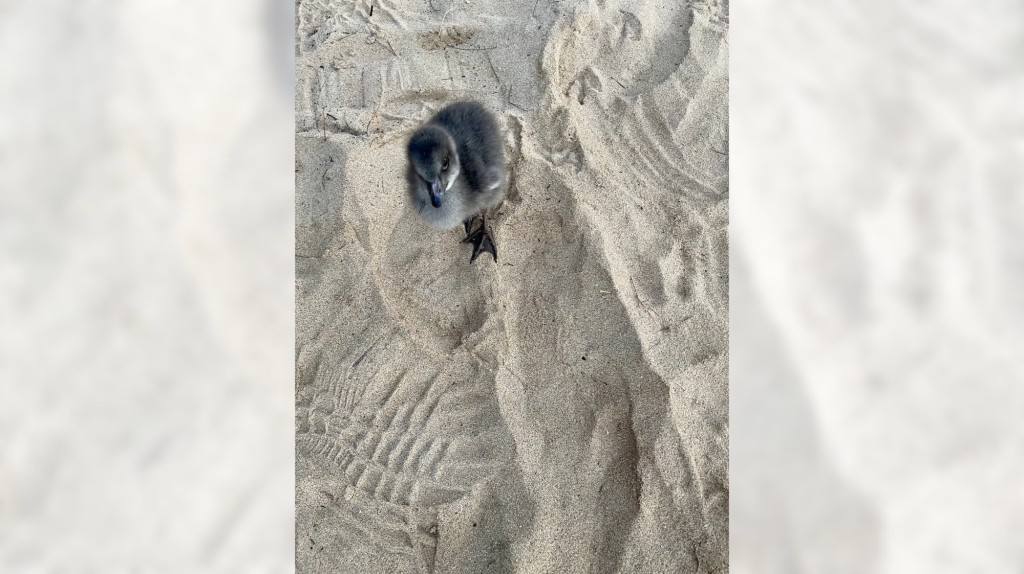11 Dec 2024

Tired Earth
By The Editorial Board

In my undergrad intro to psychology class at Yale, I was fascinated by Conrad Lorenz’s studies of animal imprinting. Photos of Lorenz being followed by a gaggle of goslings who thought he was their mom were quite endearing. Maybe that’s part of the reason I majored in psychology.
Little did I know that 35 years after graduating from college, I would have the opportunity to see Lorenz’s experiment replicated with my own eyes.
I was fortunate to be on a remote beach in Hawaii last month with my son and some dear friends. After an afternoon of being entertained by whales breaching and playing in the surf, we decided to pack up and head home.
As we were leaving, a baby gosling walked up to my son James and would not go away. We tried to encourage the chick to stay put and wait for its mom to return, but it had already attached to James and was intent on following us.
After walking quite a ways down the beach with the fledgling pecking at James’ heels whenever we stopped to try to shoo it away, we came to a stream crossing. We thought surely our fuzzy, feathered friend would turn around and head back to its nest, but no, it bravely jumped in and swam across.
Then we had to hike up a hill, and Trooper (as we had affectionately named “him” although we had no idea of gender), tagged along. When we reached the severely rutted dirt road where our Jeep was parked, Trooper fell on his side in a pothole, stood up and kept trekking. I realized there was absolutely no going back for this little fellow. So, I carefully scooped him up in a towel, and he came with us.
As it turned out, Trooper was no regular goose. He was a baby nene, a Hawaiian goose. The nene is the state bird of Hawaii and an endangered species.
After being careful to keep everyone from feeding Trooper (as cruel as it seemed), my husband and I placed him in a vented box and put the box in the garage overnight. A volunteer from a rescue group picked the bird up the next morning. She was confident that given our efforts to avoid human contact as much as possible, wildlife rehabbers would be successful in fostering out Trooper to a new nene family where he could grow up wild, as he was meant to be.
When Lorenz did his research in the 1930s, he thought imprinting — the phenomenon of an animal forming an attachment to the first thing it sees — was permanent. Subsequent research suggested that imprinting could be reversed by gradually introducing a bird back to its own species.
I really hope Trooper was successfully adopted into a new nene family. The number of nene in the wild was reduced to only 30 in the 1960s. Thanks to protection by the Endangered Species Act and rehabilitation efforts, that number is now 3,000 … or hopefully 3,001.
With spring in the air, the wildlife team at Pasadena Humane will be receiving more calls from good Samaritans who find hatchlings that appear to be orphaned. In most cases, the best thing is to leave the baby bird alone, although, as with Trooper, sometimes human intervention is appropriate.
Our website contains many tips on how to tell if a bird is really in need of rescue, and if so, how to safely capture and contain the bird and keep it as wild as possible. Be careful not to become too attached. The ultimate goal with wildlife rescue is to successfully release the animal back into the wild, where it will survive on its own.
If you encounter a bird that appears in need of rescue or need to make an appointment to bring injured or orphaned birds to the Pasadena Humane Wildlife Center, please call or text our wildlife helpline at 626-344-1129. pasadenahumane.org
Source : dailynews.com
Comment